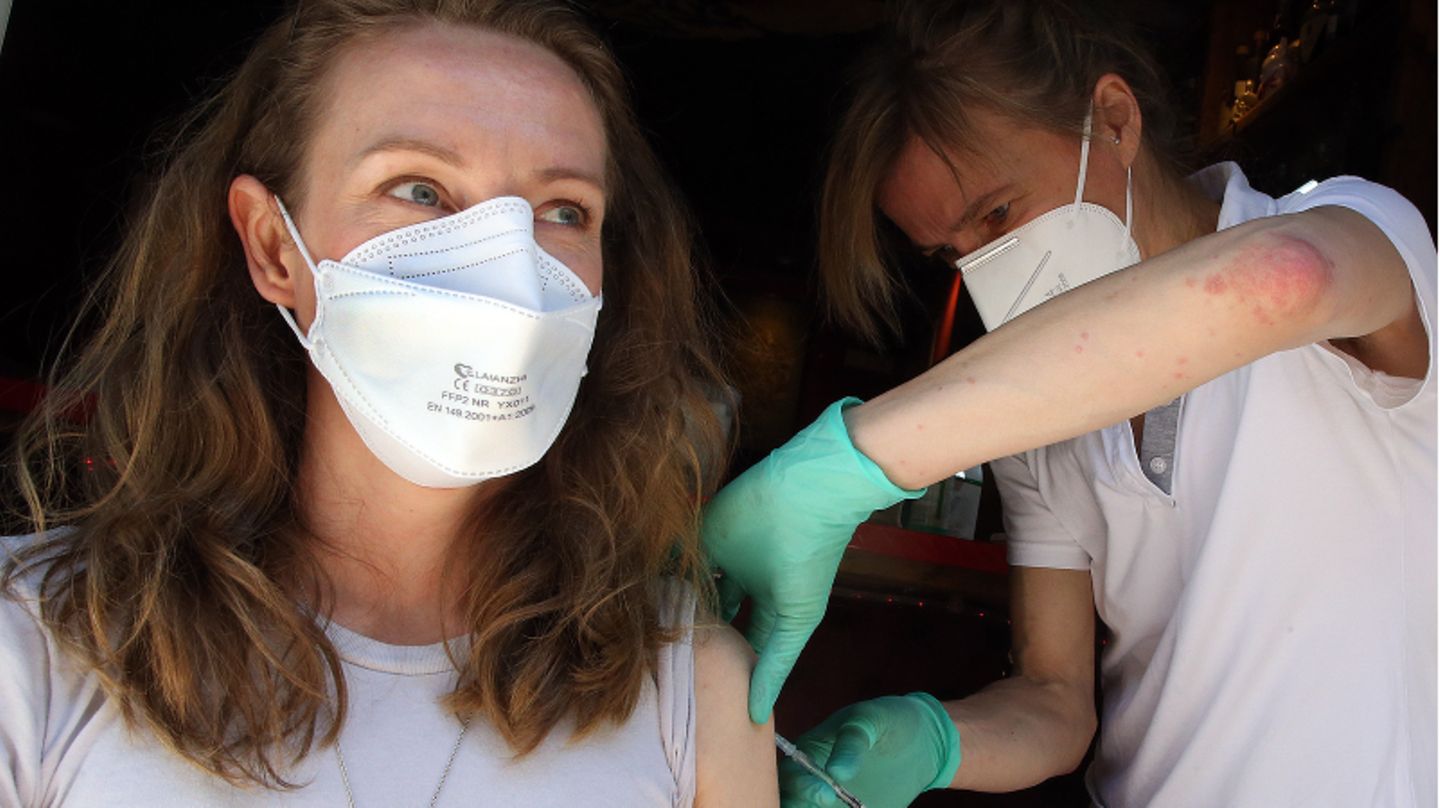Coronavirus vaccination may have mild effects on menstruation, according to a new study. However, according to the researchers, these are likely to be short-lived.
Since the start of the global vaccination campaign, women and other menstruating people have repeatedly reported irregular menstrual cycles. Some said their period was late. Others reported bleeding more than usual or associated pain. Several women, who have actually been through menopause for years, even stated that they had their days again.
A first study has now shown that the menstrual cycle of women can actually be delayed after the corona vaccination. According to the study published in the US journal “” on Thursday, bleeding began about a day later in vaccinated women than in unvaccinated women. However, the duration of the menstrual period was not affected. Overall, the effects of the vaccination on the period are therefore small and, according to the researchers, probably only temporary.
Coronavirus vaccination does not significantly change menstruation
For the study, the scientists evaluated anonymized data from a fertility monitoring app in women aged 18 to 45 who were not using hormonal contraception. Around 2,400 women in the dataset were vaccinated, most with Biontech / Pfizer (55 percent) followed by Moderna (35 percent) and Johnson & Johnson (seven percent). The data from 1500 unvaccinated women were used as a comparison group.
The researchers compared the data from three consecutive menstrual cycles before vaccination with three cycles during and after vaccination. In the unvaccinated women there were six consecutive cycles. On average, the first vaccine dose was associated with an increase in cycle length of 0.64 days and the second dose with an increase of 0.79 days. The changes appeared to be most pronounced when vaccination occurs early in the follicular phase, which begins on the first day of menstruation and ends with the onset of ovulation. If two vaccinations with Biontech or Moderna fell on the same cycle, the bleeding was delayed by an average of two days.
The scientists see the immune system’s reaction to the vaccine as a possible cause of the changes. A boosted immune system could therefore affect the so-called hypothalamus-pituitary-ovarian axis, which the study authors call the “highway of communication between the brain and ovaries and uterus”. In particular, the production of inflammatory proteins called cytokines appears to interfere with the way this axis regulates the timing of menstrual cycles.
Researcher: Study results “very reassuring”
The study’s lead author, Alison Edelman of Oregon Health & Science University, told AFP that the results were “very reassuring” and confirmed reports from women who noticed changes in their periods after vaccination. The study could also help to refute misinformation on the topic on the Internet.
From a medical point of view, the slight increase in the menstrual cycle is not significant. Any change of less than eight days is classified as normal by the International Federation of Gynecology and Obstetrics. Although cycles usually last around 28 days, the exact duration varies from woman to woman and also over the course of life. It can change even in times of stress.
It is not yet known whether other vaccines also affect menstruation – because vaccine studies generally do not examine cycle data. This information is just as important as knowing that you can have a headache or develop a fever after the vaccination, Edelman said. She and her colleagues now want to collect more data to confirm a long-term return of the cycles to baseline. They are also planning to collect data around the world to examine differences between individual vaccines
Sources: “”, “”, with AFP material
Source From: Stern




